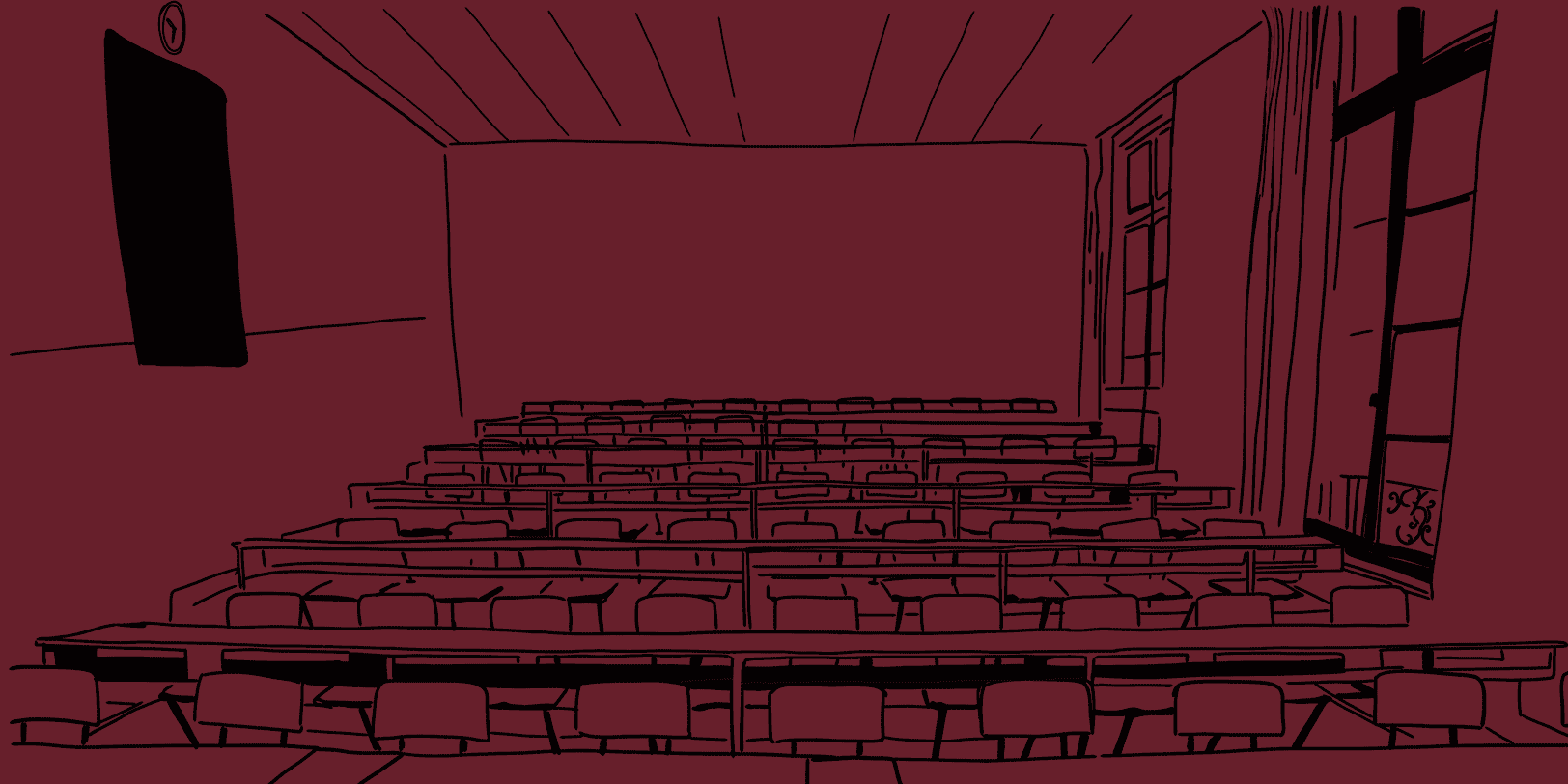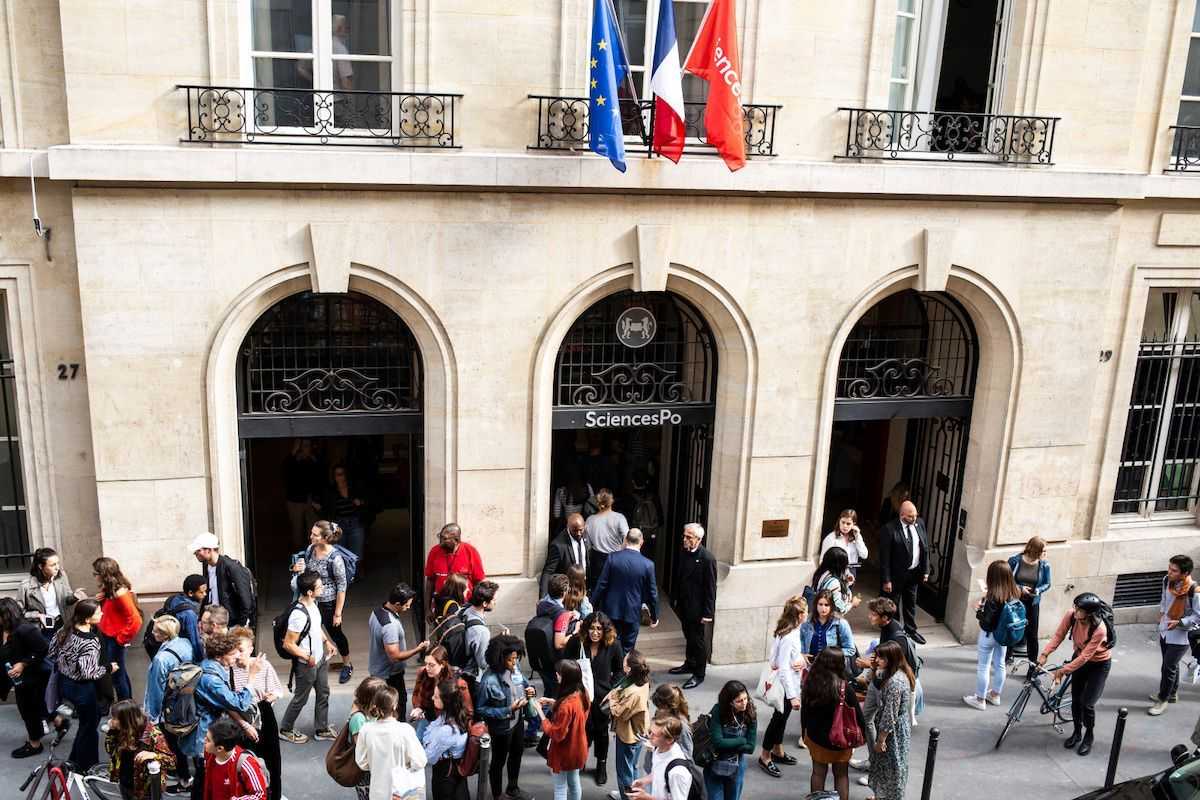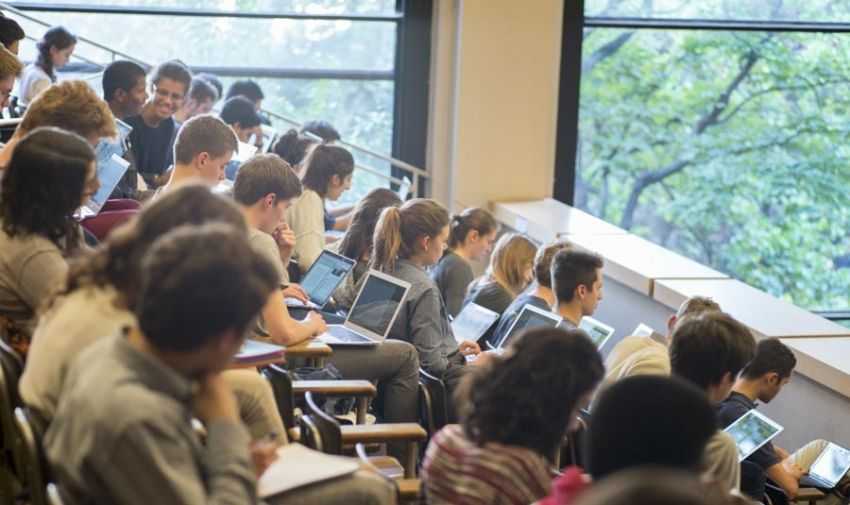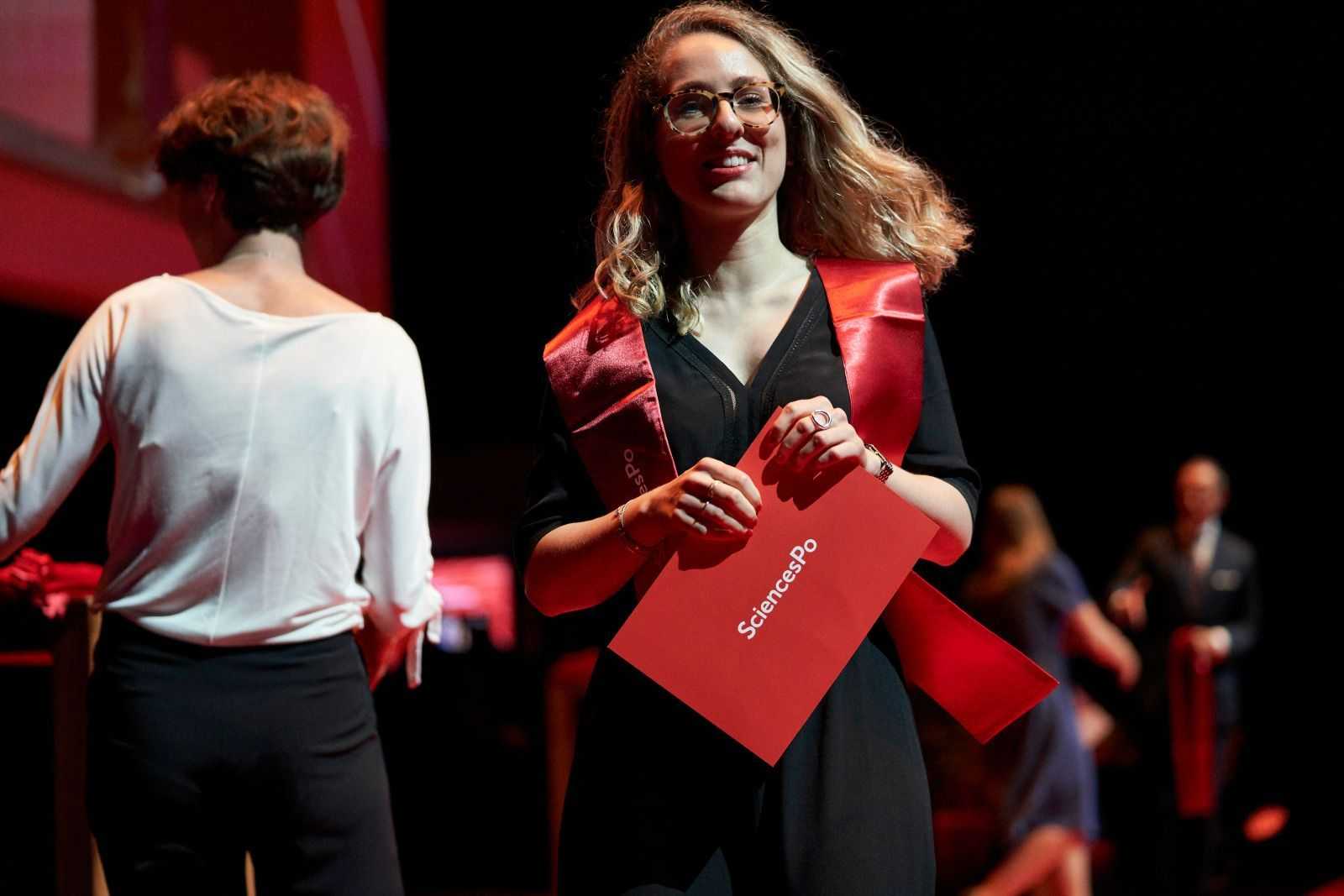
Grand oral
What constitutes the "Grand Oral"?
Sciences Po’s emblematic “Grand Oral” examination draws on the students’ experience during their final year off-campus semester, whether it be an internship, a study period abroad, a Master’s thesis, a personal project or any one of the specific projects in place in certain Schools. Students must select one particular issue with a connection to the core subjects studied during their Master’s.
In order to pass the “Grand Oral” exam, which is one of the compulsory requirements for obtaining a degree (see article 44 of the Academic Rules and Regulations, PDF, 136 Ko), students must achieve at least a 50% mark (minimum of 10/20). Repeat sessions will be held for students who do not achieve this during the initial exam.
Types of "Grand Oral"
- If the candidate’s off-campus experience takes the form of an internship, the “Grand Oral” will consist of an oral presentation based on an executive summary (see below).
- If the candidate’s off-campus experience takes the form of a thesis, the “Grand Oral” will consist of a viva voce presentation to defend the thesis. The form this will take is decided by each School.
- If the candidate’s off-campus experience takes the form of another type of educational project, the “Grand Oral” will consist of an oral presentation of the project itself. The form this will take is decided by each School.
The Schools will inform their students of the conditions applicable to the presentation of Master‘s theses, educational projects and apprenticeships. The choice of language used for the “Grand Oral” can be discussed with the master's academic team. If English is used, the student must have minimum C1 level. Some Schools or Programmes may have specific requirements according to their specialisations (notably the School of Journalism and Master in Economic Law).
Duration of the “Grand Oral”
The oral examination lasts 25 minutes: 10 minutes for the student’s presentation and 15 minutes for discussion on the chosen topic and on future career development, as well as feedback on his or her studies.
Last but not least, candidates are reminded that absolute punctuality and smart dress are required.
Further methodological resources:
- Memo 1: Sciences Po, school of argumentation (PDF, 378 Ko)
- Memo 2: Extracting the research question (PDF, 136 Ko)
- Memo 3: Organizing your argumentation (PDF, 892 Ko)
- Memo 4: Extending your argumentation (PDF, 143 Ko)
- Memo 5: Rule of Three (PDF, 216 Ko)
- Memo 6: Extending your argument (PDF, 204 Ko)
- Memo 7: Logical connectors in English (PDF, 110 ko)
- Video: Q&R preparation session in the Boutmy amphitheatre (from 4th May 2018)
Executive summary
The executive summary is an essential component of the “Grand Oral” exam. It is useful to remember that it is not a specialisation exam but an opportunity to gauge the academic achievements acquired by students throughout their time at Sciences Po and their ability to make the connection with their pre-professional experience (internship or team project), from a multidisciplinary perspective. It is a matter of placing the subject, however technical, within the context of an issue of general interest, capable of retaining the attention of non-specialists (beginning with one of the two jury members who is not an expert in the field concerned). Consequently, the summary should not overuse acronyms or abbreviations (these should always be clarified).
The executive summary serves to introduce the following elements, under clear headings, prior to the exam:
- Full personal details: last name, first name, nationality, School, Master’s programme, internship (place, dates, position held).
- Precise definitions of the subject’s key concepts: “gender”, “social economy”, “constitutional state”, “civil society”, “climate change”, “globalisation”, “juridification”, “migrants”, “refugees”, “soft power”, etc. are all examples of terms commonly used in the media, which, when they lack clear definition, often lead to futile debate.
- Basic detailed facts and figures. It is impossible to present any issue of cultural policy, without identifying both the global cultural budget and that of the sector in question (film, literature, heritage, etc.) in the country under consideration. In the same way, a topic involving climate change must include the development and distribution of greenhouse gas emissions, relevant to the major geographical zones. If this is not the case, students can be sure that these questions will be asked of them during the discussion.
- The subject chosen for the “Grand Oral” is to be drawn equally from the student’s academic knowledge and their professional experience (see Memo 2 “Extracting the research question” ) The discussion should not be limited to what Max Weber called “the ethic of conviction” (“we must”, “the only solution is to”, “human rights demand that”, “the public good requires that”): the political, legal, economic, financial and technical aspects, as well as sociological considerations (who is for? who is against?) of any collective issue must be examined by those who are to become decision-makers, be it in the private or the public sector (see Memos 3 and 4 on the argumentation). The perspective expected from candidates at the “Grand Oral” is rather that of “the ethic of responsibility”, to quote Max Weber once again. This ethic aims to improve the workings of our societies, while taking full account of the context and the foreseeable outcomes of the proposed action. For example, on the issue of energy transition, neither the summary nor the presentation should simply put forward the superiority of renewable energies without taking into account their comparative cost, the technical questions that are as yet unresolved (as in storage) and their potential negative effects (cf. the nuclear phase-out in Germany).
- A short but precise bibliography (10 titles maximum) which complies with the correct academic guidelines (French or English referencing rules, according to the language chosen). It should set out in a balanced way the main referenced works, scientific articles and current internet sources.
The absence of any reference to the great political thinkers or theorists in economics and sociology, whatever the subject, is unacceptable after 5 years in higher education. Again, the “Grand Oral” is not a specialisation exam. On subjects involving “soft power” or “smart power”, Joseph Nye’s work on these notions must evidently be mentioned, but Machiavelli’s intuitions can also be considered: doesn’t the Prince have to demonstrate not only the lion’s strength (“hard power”) but also the fox’s cunning (“smart power”)?
Download: Executive summary model (PDF, 217 Ko)
The jury relies on the summary as well as the presentation, to facilitate discussion with the candidate. Please note: the student must complete his or her oral presentation without using notes or documents, that is, without the executive summary, with which he or she should be thoroughly acquainted.
The oral presentation must not be a simple repetition of the summary. It should include the following elements:
- a brief overview of the details and principal concepts from the summary
- an outline and development of the chosen subject
- a clear and logically-structured argument
- a solution to the issue through a combination of academic knowledge and off-campus work experience or research
Please note: between the handing-in of the summary and the oral exam, new events or information may arise concerning the chosen subject (particularly in the case of international relations or domestic policies): the student should report these and is free to modify, if necessary, the approach outlined in the summary. In any case, candidates are expected to be aware of the latest developments in their subject and the jury will be sure to question them on this during the interview.
The jury’s assessment is based primarily on the oral presentation, but an executive summary that does not fulfil requirements could lead to a lower final mark. The assessment will encompass the ability to conceptualise, to put into perspective, to build and structure an argument, and to contextualise personal experience, knowledge and skills in order to address a complex professional issue. The relevance of the chosen subject, the variety and quality of the argumentation, as well as the student’s critical analysis, both in relation to his or her professional experience and academic achievements, will all be taken into account in the grade. Candidates should be aware that the multidisciplinary vocation of Sciences Po should be reflected in this final examination, culmination of five years of study. Whatever the specialisation, considerations drawn from other academic fields will be expected: for example, history and politics in law, law in international relations or economics, etc. However, the main points of the issue and the fundamental argument should naturally be relevant to the principal course of study.
The “Grand Oral” is indeed an opportunity to monitor knowledge and coherent thought processes, but it is also a test of intellectual commitment. Contrary to a certain legendary “Sciences Po method”, the conclusion to an argument is never a compromise, and even less a refusal to choose or to commit oneself, by using “on the one hand, on the other” or “the truth is somewhere in between”. Whatever the chosen structure, each step should mark a progression in relation to the initial issue set out in the introduction, and ultimately lead to a clear position, whether nuanced or not.
Students have adequate time to prepare their executive summary both in content and in form. It should be written in Times New Roman, font size 12, and the pages should be numbered. The word count should be indicated (800, not including personal and bibliographical details). In the case of a summary written in French or English by a non-native speaker, it is essential to have the text checked by a native speaker. Sciences Po is a resolutely international school, particularly at Master’s level, where it is not hard to find a fellow student who can read through the summary. The jury will pay special attention to language correction, in the interest of the candidates, who will be directly confronted with this requirement as soon as they begin their careers.
Detailed information on how the executive summary should be submitted – in electronic format only - will be sent to students by e-mail at a later date.
This session will take place from Wednesday 14 to Friday, May 23 inclusive. The date of each student's oral exam depends on the availability of the jury.
If the exam is not validated at this session (less than 10/20), the student will have to sit the exam a second time at the session on 3 and 4 June 2025.
In accordance with the terms communicated by le Pôle central, students must submit their executive summary byTuesday, 1st April 2025 at the latest (before midnight) so that it may be distributed to jury members. Any summaries received after this date will not be accepted.



